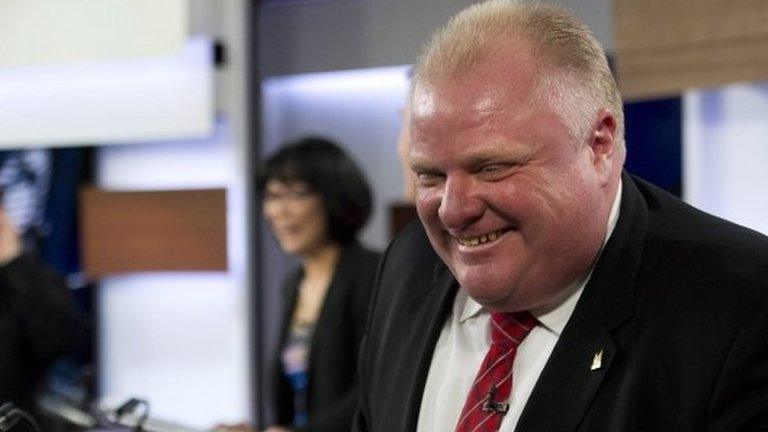Toronto Mayor Rob Ford withdraws from race with tumour
- Published
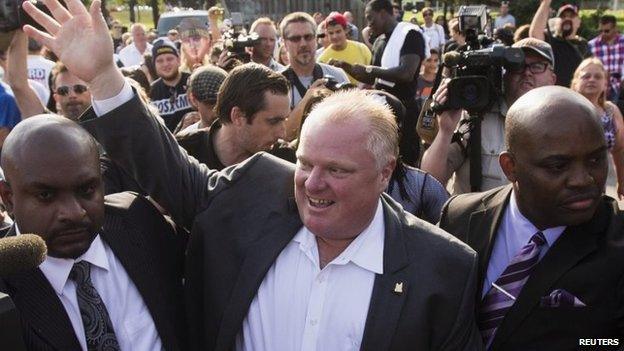
Ford's name was added to the ballot in his old constituency in the Etobicoke neighbourhood
Embattled Toronto Mayor Rob Ford has withdrawn from October's mayoral election after being diagnosed with an abdominal tumour.
The mayor, 45, had defied calls to step down after admitting last year he had smoked crack cocaine while in office.
He was admitted to hospital on Wednesday after suffering months of abdominal pain.
Doug Ford: "He told me that he needed me to take the torch while he focuses on getting better"
His brother and political confidant Toronto Councillor Doug Ford has replaced him on the ballot.
During a news conference on Friday evening, Doug Ford said his brother "needed me to take the torch while he focuses on getting better".
Drunken stupor
At the same time as he withdrew from the mayoral election, Rob Ford's name was added to the ballot papers to run for councillor in his old constituency of Ward 2 in Etobicoke, signalling his desire to retain a political presence in the city.
Amid the flurry of activity at Toronto's city hall on Friday, Mr Ford issued a statement from his hospital bed saying it had been an "honour" to serve as mayor.
"People know me as a guy who faces things head-on and never gives up," Mr Ford said.
Toronto Mayor Rob Ford: In his own words
"Now I could be facing a battle of my lifetime, and I want the people of Toronto to know that I intend to face this challenge head on, and win."
In 2000, Mr Ford was elected to represent the Toronto neighbourhood of Etobicoke in the city council.
In that role, he gained a reputation for controversial remarks and an aversion to spending city money.
From there he ran for mayor with a promise to "end the gravy train" at city hall.
Crack cocaine
In 2010 he was elected mayor with 47% of the vote, largely on the strength of his support in the outlying suburbs.
His brother Doug Ford Jr replaced him on the council as a representative from Etobicoke.
His first term brought him popularity in Toronto's suburbs for privatising the rubbish collection in a large swathe of the city and repealing an unpopular vehicle tax.
But it also brought him notoriety for his flamboyant behaviour which included public drunkenness, misuse of official resources and drug use.
Then last year, the Toronto Star and US news and gossip website Gawker reported they had watched videos of him appearing to smoke crack cocaine.
In November, Mr Ford admitted he had purchased and used the drug while in what he described as a drunken stupor.
Toronto Mayor Rob Ford dances in council chamber
Though eventually stripped of most of his mayoral powers by the Toronto city council, Mr Ford defied calls to step down and announced he was running for re-election.
Mr Ford did a month-long stint in rehab, then returned to city hall in June.
Recent polls have shown him in contention, buoyed by support from the "Ford Nation" in the city's inner suburbs and among younger, less educated and poorer voters in Canada's largest city.
Rob Ford's withdrawal leaves Olivia Chow, a former NDP member of parliament, and John Tory, a businessman and former Progressive Conservative member of the Ontario parliament, as the frontrunners in the 27 October election.
It remains to be seen whether Doug Ford can pick up his brother's support.
On Friday, he told reporters Rob had asked him to run for election as the mayor quit the race.
"He couldn't bear the thought of city hall returning to its old ways," Doug Ford said.
Mr Ford would not comment on whether his campaign platform would be the same as his brother's, saying he was taking several days to be with family, but said he and his brother "shared the same values".
- Published22 March 2016
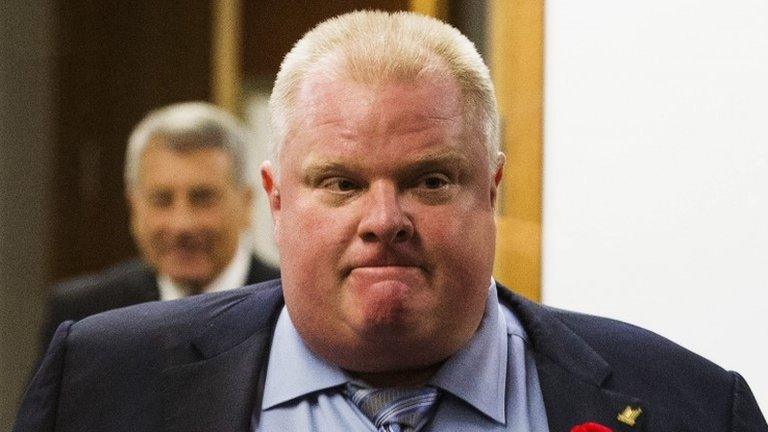
- Published4 November 2013
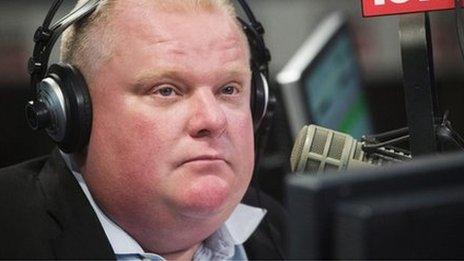
- Published29 August 2014
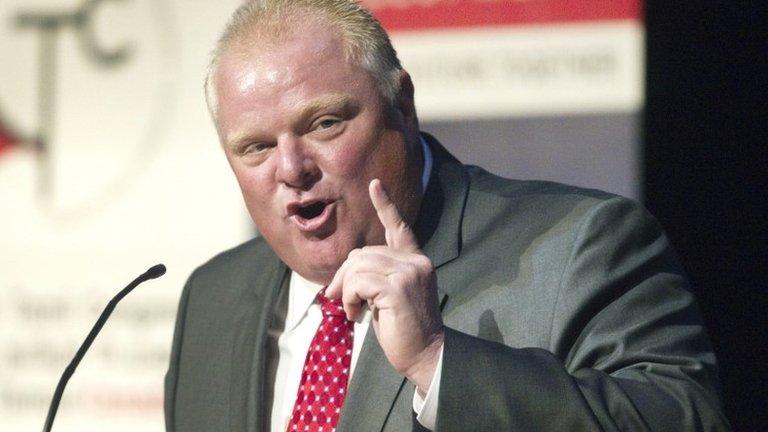
- Published13 April 2014
